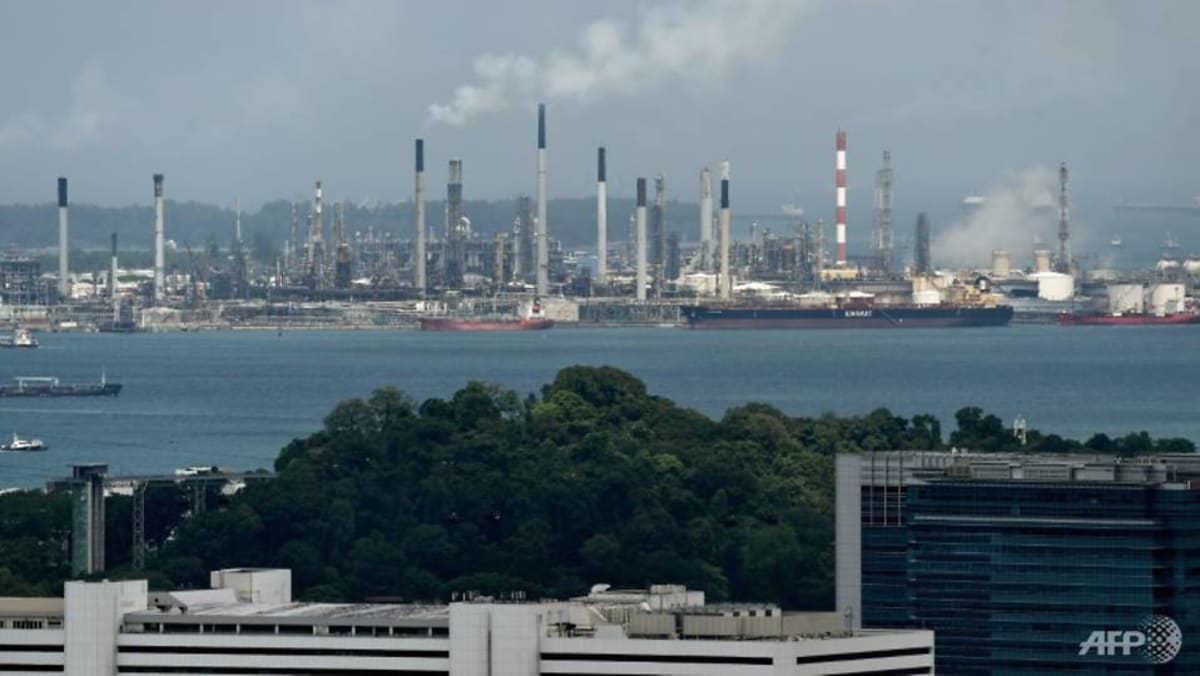CALLS FOR GREATER TRANSPARENCY ON TRANSITIONAL ALLOWANCES
To ease the transition for some firms, transitional allowances were provided for certain “emissions-intensive and trade-exposed sectors”, such as those in the chemicals, electronics and biomedical manufacturing industries.
The environmental groups called for the authorities to release the range of effective carbon taxes paid by facilities, and to clarify the benchmarks provided to decide the amount of allowances awarded.
Without facility-level disclosures, it is “impossible” to verify whether the allowances applied are “fairly and genuinely transitory”, the groups wrote.
“Questions remain whether the framework strikes the right balance between ambition and protection, and whether the price signal is effective enough to drive deep emission cuts,” the groups wrote.
The groups noted that there is currently no public information on the effective carbon tax rate after allowances, although estimations have been reported.
In June, The Straits Times reported that the projected revenue collected from Singapore’s carbon tax for 2024 was lower than expected, despite the fivefold increase in tax rate that was implemented that year.
Reuters also reported last year that Singapore offered refiners and petrochemical companies rebates of up to 76 per cent for its planned carbon tax for 2024 and 2025.
As a result, companies paid between S$6 to S$10 per tonne of carbon equivalent, or up to four times lower than the supposed rate.
In its response to the open letter, NCCS said companies in these sectors are at a higher risk of carbon leakage – or relocation to other jurisdictions with lower or no effective carbon prices.
It added that the allowance awarded to facilities is pegged to “industry efficiency benchmarks”.
NCCS said the allowances are limited to only a portion of companies’ emissions, and that the amount awarded will be reviewed regularly.
Remaining emissions are subject to the prevailing carbon tax rate. Allowances also do not cover indirect greenhouse gas emissions, such as those produced from the electricity that the company uses.
“It is important to note that allowances are not a free pass for our EITE (emissions-intensive and trade-exposed) companies to continue emitting,” the spokesperson said, adding that eligible facilities must have “credible net-zero decarbonisation plans”.
As for the call for facility-level data on allowances, the NCCS spokesperson said that the authorities have “carefully considered” the potential impact on competitiveness for companies and the “desire for more transparency”.
Companies have raised concerns about how information on allowance could be used to “compromise their strategies and operations”, the NCCS spokesperson said, adding that the aggregated information will be released “in due course”.
PROTECTION OF CONSUMERS, MORE PUBLIC ENGAGEMENT
Apart from the transitional allowances issue, the environmental groups also called for greater protection of consumers who may have to pay higher prices due to the increased carbon tax.
The letter noted that certain companies are not granted allowances, such as power generation and waste management firms.
The environmental groups urged the government to provide support to vulnerable households, which might be disproportionately affected, through permanent rebates or a tiered pricing model.
In response, the NCCS spokesperson said that they are “mindful” of the potential impact of the carbon tax on households’ utility expenses.
The authorities had previously provided an additional S$20 of U-Save per quarter for two years to eligible HDB households to cushion the impact of higher utility bills, under the S$1.1 billion cost-of-living package announced in Sep 2023.
Under the enhanced Climate Friendly Households Programme, eligible households could also claim S$400 in climate vouchers to switch to resource-efficient appliances and fittings.
Finally, the environmental groups called for more meaningful public engagements, such as public consultations and citizens’ panels, to take into account the perspectives of households and other stakeholders.
Any deviation from planned carbon tax levels should be clearly explained, with disclosure of stakeholders supporting it, to improve transparency and accountability, they said.
The NCCS spokesperson said that the government has “consistently engaged” both the private and people sector in their climate policies, including carbon tax policies, and will continue to do so.
For example, the NCCS held a public consultation in 2017 to seek feedback and suggestions on the carbon tax policy when it was first introduced in the government’s budget for 2018.
In 2022, the Ministry of Sustainability and the Environment also launched a public consultation exercise organised by REACH – the government’s feedback unit – to seek feedback on the draft Carbon Pricing (Amendment) Bill.
NCCS also recently ran an online public consultation from October to November last year on Singapore’s decarbonisation journey, in which 580 respondents gave feedback on Singapore’s carbon tax policy.
The findings of the consultations were published on the NCCS and REACH websites.
